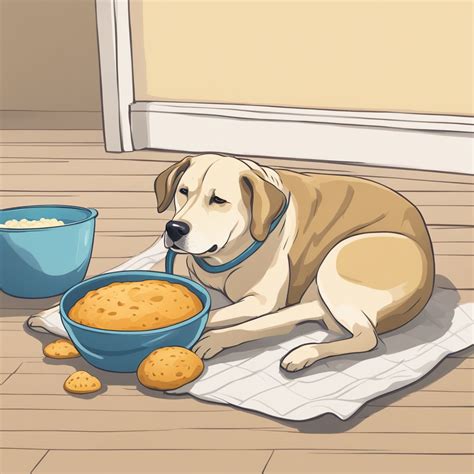Feeding livestock raw bread dough may seem like a harmless or even beneficial practice, but it can pose significant health risks to the animals. Raw bread dough, which typically contains yeast, flour, water, salt, and sometimes sugar, can be a tempting treat for livestock, especially horses, cattle, and pigs. However, the dangers associated with feeding raw bread dough to livestock far outweigh any perceived benefits. In this article, we will explore the five dangers of feeding livestock raw bread dough.
What Happens When Livestock Eat Raw Bread Dough?
When livestock eat raw bread dough, the yeast in the dough begins to ferment, producing carbon dioxide gas and ethanol. This process can lead to a range of health problems, from mild discomfort to life-threatening conditions.

Danger 1: Bloat and Ruptured Stomach
One of the most significant dangers of feeding livestock raw bread dough is the risk of bloat and stomach rupture. The yeast in the dough can cause the animal's stomach to expand rapidly, leading to severe discomfort, pain, and potentially life-threatening complications. If the stomach ruptures, the animal can quickly succumb to peritonitis, a bacterial infection of the abdominal cavity.
Danger 2: Ethanol Toxicity
As the yeast in the raw bread dough ferments, it produces ethanol, a toxic substance that can cause a range of health problems in livestock. Ethanol toxicity can lead to symptoms such as vomiting, diarrhea, lethargy, and even respiratory failure. In severe cases, ethanol toxicity can be fatal.
Danger 3: Respiratory Distress
The carbon dioxide gas produced during fermentation can also lead to respiratory distress in livestock. As the gas builds up in the animal's stomach, it can put pressure on the lungs, making it difficult for the animal to breathe. This can lead to symptoms such as rapid breathing, panting, and even respiratory failure.
Danger 4: Nutritional Imbalance
Raw bread dough can also cause nutritional imbalances in livestock. The high carbohydrate content in the dough can lead to an imbalance of gut bacteria, causing digestive problems and potentially even malnutrition. Additionally, the yeast in the dough can interfere with the animal's ability to absorb essential nutrients.
Danger 5: Dependence and Overconsumption
Finally, feeding livestock raw bread dough can lead to dependence and overconsumption. Livestock may become accustomed to the tasty treat and begin to seek it out, leading to overconsumption and potentially even addiction. This can lead to a range of health problems, including obesity, digestive issues, and other nutritional disorders.

Alternatives to Raw Bread Dough
So, what can you feed your livestock instead of raw bread dough? Here are a few alternatives:
- Fresh fruits and vegetables: Many fruits and vegetables are safe for livestock to eat and can provide essential nutrients.
- Hay and grains: High-quality hay and grains can provide a balanced diet for livestock.
- Commercial livestock feeds: Commercial feeds are formulated to provide a balanced diet for livestock and can be a convenient alternative to raw bread dough.

Conclusion
Feeding livestock raw bread dough may seem like a harmless practice, but it can pose significant health risks to the animals. The dangers of bloat and stomach rupture, ethanol toxicity, respiratory distress, nutritional imbalance, and dependence and overconsumption make it essential to avoid feeding raw bread dough to livestock. Instead, opt for a balanced diet that includes fresh fruits and vegetables, hay and grains, and commercial livestock feeds.






What are the dangers of feeding raw bread dough to livestock?
+The dangers of feeding raw bread dough to livestock include bloat and stomach rupture, ethanol toxicity, respiratory distress, nutritional imbalance, and dependence and overconsumption.
What are some alternatives to raw bread dough for livestock?
+Alternatives to raw bread dough include fresh fruits and vegetables, hay and grains, and commercial livestock feeds.
Why is it essential to avoid feeding raw bread dough to livestock?
+Feeding raw bread dough to livestock can pose significant health risks, including bloat and stomach rupture, ethanol toxicity, respiratory distress, nutritional imbalance, and dependence and overconsumption.
